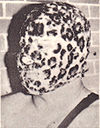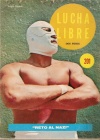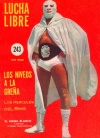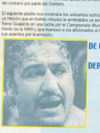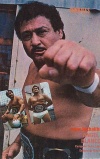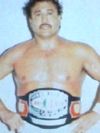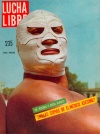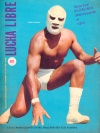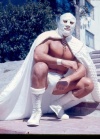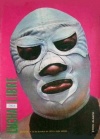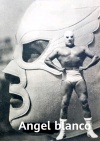Ángel Blanco: Difference between revisions
No edit summary |
|||
| Line 87: | Line 87: | ||
{{Gallery|name=Angel79.jpg|caption=Wrestling with Fujinami 1979}} | {{Gallery|name=Angel79.jpg|caption=Wrestling with Fujinami 1979}} | ||
{{Gallery|name=Angelbranco15.jpg|caption=as [[Mexican National Cruiserweight Championship|MEX Cruiserweight Champ]] 1983}} | {{Gallery|name=Angelbranco15.jpg|caption=as [[Mexican National Cruiserweight Championship|MEX Cruiserweight Champ]] 1983}} | ||
<Br clear=all> | |||
{{Gallery|name=Angelblanco-curcero.jpg|caption=}} | {{Gallery|name=Angelblanco-curcero.jpg|caption=}} | ||
{{Gallery|name=Tumblr_mp2klaV0HT1qesseao1_640.jpg|caption=}} | {{Gallery|name=Tumblr_mp2klaV0HT1qesseao1_640.jpg|caption=}} | ||
{{Gallery|name=Tumblr_movud1422N1qesseao1_640.jpg|caption=}} | {{Gallery|name=Tumblr_movud1422N1qesseao1_640.jpg|caption=}} | ||
| Line 94: | Line 94: | ||
{{Gallery|name=Tumblr_nhyxneojQQ1tmui3go1_r2_400.jpg|caption=}} | {{Gallery|name=Tumblr_nhyxneojQQ1tmui3go1_r2_400.jpg|caption=}} | ||
{{Gallery|name=101794359_1090679817992009_489035823893788147_o.jpg|caption=}} | {{Gallery|name=101794359_1090679817992009_489035823893788147_o.jpg|caption=}} | ||
<Br clear=all> | |||
{{Gallery|name=101809667_1948944648569525_6278136138183999488_n.jpg|caption= with [[Dr. Wagner]]}} | {{Gallery|name=101809667_1948944648569525_6278136138183999488_n.jpg|caption= with [[Dr. Wagner]]}} | ||
[[Category:Mexican wrestlers|Angel Blanco]] | [[Category:Mexican wrestlers|Angel Blanco]] | ||
[[Category:Deceased wrestlers|Angel Blanco]] | [[Category:Deceased wrestlers|Angel Blanco]] | ||
[[Category:La Arena bios|Angel Blanco]] | [[Category:La Arena bios|Angel Blanco]] | ||
Revision as of 18:22, 29 April 2022
Profile
| Ángel Blanco (White Angel) | |||||||||||||||||||||||||||||
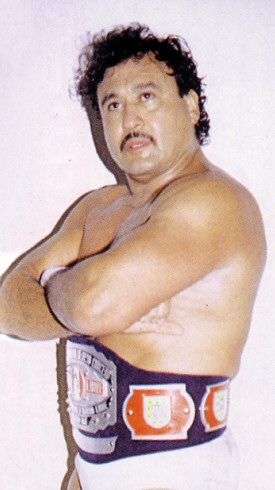 |
|
||||||||||||||||||||||||||||
Biography
Jose Ángel Vargas was born in the city of Atoyac, Jalisco on August 2, 1936. His parents were Francisco Vargas and Francisca Sánchez. He grew up as a fan and when he was old enough to train lucha, with it being Jalisco and all, he studied under the tutelage of Diablo Velasco, and Miguel Navarrete as well.
He debuted under the name "Ranchero" Vargas facing Carlos Mayo in Morelia, Michoacán. There is not an exact date for this, but it probably was 1960 or 1961. He soon started competing under the mask of El Gato Negro (Black Cat), sometimes also announced as El Gato Negro Enmascarado, though I guess they never announced him like that after he lost his mask to José Gómez in Iraputo, Guanajuato.
He also wrestled for a bit as one half of the Hermanos Diablo (not to be confused with the Los Gemelos Diablo) with the other half being none other than Black Gordman, until Torreón promoter Gonzalo Gómez named him El Ángel Blanco and had him debut at the Plaza de Toros de Torreón during 1962, teaming with Goliath to defeat Polo Torres and Joe Marín. One funny thing about this match is that he was replacing the no-showing Dr. Wagner, who would later become his legendary friend and partner. But his first famous tag team, though a short-lived one, was with another white masked man, El Enfermero. This was in 1963, three years after Enfermero's team partner Médico Asesino died.
Later on he'd form the already mentioned tag team with Wagner. Both were excellent singles wrestlers, but they had that awesome chemistry that only a couple dozen of the greatest tag-teams of all time had. By the late 60s, the tag team would become a trio as El Solitario, one of the greatest workers of all time in Mexico, joined them as their regular partner-in-crime. But seeing Solitario's style, charisma and crowd appeal, what was going to happen ended up happening. El Solitario had to be turned tecnico, and what could have been better than having both members of La Ola Blanca (The White Wave) turn on him? This starting feud set business on fire and all three, now on opposing teams, had tons of great matches drawing sellout after sellout in almost every single arena they stepped in.
Parallel to his tag team or trio career, Blanco also was a successful singles wrestler that other than with Solitario, had several high-profile feuds with people such as Ray Mendoza (his most important opponent other than Soli) and Dory Dixon. He also captured some singles titles during his career, the most important one being the NWA World Light Heavyweight Title he traded with Ray Mendoza (winning it on May 9, 1968 in Torreón and losing it the Christmas of 1968 at Arena Mexico in the semi main event of a sellout card headlined by Solitario vs. René Guajardo mask vs. hair). He also was a National Heavyweight champion (winning it in 1969 from Raúl Reyes and in a true upset losing it to a very young Enrique Vera on October 26, 1973 after a long reign). His other singles title during his career was the National Cruiserweight one, as he became the first champion by winning a tournament, going over El Insolito in the finals at the Palacio de los Deportes on November 13, 1983 and lost it to Adorable Rubí on October 7, 1984.
But going back to his feud with Solitario, they had a mask vs. mask match on December 8, 1972 before an Arena Mexico sellout where Blanco lost his hood. This didn't mean the end of the feud though, as Blanco was one of those guys that didn't need a mask at all. While Dr. Wagner could be said to be more charismatic than Blanco was, the general feeling was that Wagner wouldn't be the same without his mask (and after he lost it, even though he had a great rough rudo look, he wasn't the same), but Blanco kept his popularity intact.
The unmasked Blanco had a great personality and a lot of presence, and even though his wrestling name never changed, the fans and some magazines started referring to him as "El Ranchero" Vargas more often than not, like it was a new wrestler with a new personality instead of the old Ángel Blanco.
Blanco was one of the many guys that left EMLL for the independent UWA in 1975, though he wasn't in the promotion's debut show so perhaps he joined in a second batch shortly after the actual promotion started. He was there, featured in programs against his old-time opponents and of course teaming with Wagner, however his best days were gone. Even though he hadn't been a star for all that long and he was only in his early 40s, by the late 70s he was seen more like a legendary headliner of the past and outside the occasional big match (like him challenging for Tatsumi Fujinami's WWF World Junior Heavyweight Title, he was a true main eventer mostly in the smaller arenas as a newer generation of stars such as Canek, Villano III or Los Missioneros De La Muerte were taking the top slots at El Toreo and the only wrestler from that generation being used constantly as a singles main eventer there was El Solitario, but that was because he still looked as fresh as ever and he was much younger than the others because of his rise to stardom at a very young age.
Not even his short-lived feud with eternal friend Dr. Wagner made him stay on top for too long in the big Mexico State arenas, however he was as big of a star as ever in the Northern circuit, especially Monterrey, a city that was on fire.
Vargas died in a very sad incident on April 26, 1986. He was in a car with fellow wrestlers Dr. Wagner, Jungla Negra, Mano Negra and Solar I, heading back to Monterrey, Nuevo León after working a show in Nuevo Laredo, Tamaulipas. The car crashed and Blanco had the worst part as the injuries suffered caused his death, though Wagner's career also came to an end as he was also hurt badly and had to be put in a wheelchair. One weird thing is that their long time ring enemy but great real life friend El Solitario had died just 20 days before, so it's like they had a tragic bond of friendship.
Ever since the 80s there's been many other Ángel Blanco's. The first Junior was Rey Salomón, who was married to one of Vargas' daughters and had the right to use the mask and name until they divorced. He's the one that has had the longest run and probably the best worker. The current one who mostly wrestles in Guadalajara, is a legitimate son of Vargas, and I believe that the Hijos del Ángel Blanco I/II that wrestled at Arena Mexico in the early 90s are legitimate sons as well.
But none of them has truly lived up to the name of the original Ángel Blanco.
Luchas de apuestas record
- ↑ MF
Gallery
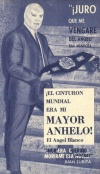 as NWA World LH Champ 1968 |
 as MEX Cruiserweight Champ 1983 |
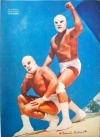 with Dr. Wagner |
